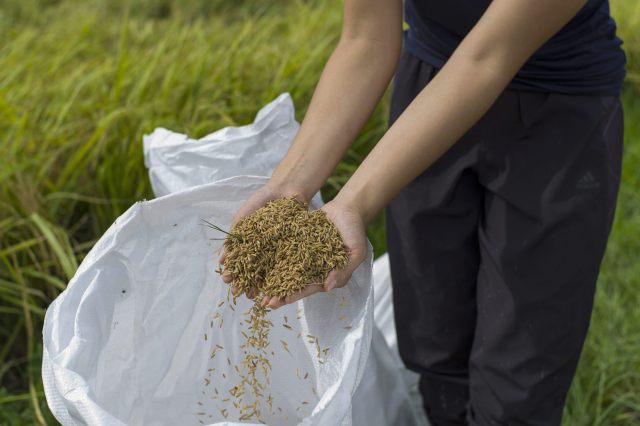
Ranging from the constant failures in fuel distribution, shortage of agricultural supplies, lack of timely financing, to the deterioration of machinery and roads, all these are part of the complex reality that small and medium-sized rice producers face daily in the Río Guárico Irrigation System, in Calabozo, Miranda Municipality of Guárico State.
lapatilla.com correspondent
For the agricultural producer from Calabozo, Jesús Cepeda, the work of the state’s farmers has been impoverished by the deplorable conditions of the agricultural sector.
“Here there is 90% general poverty and it is an ordeal to be in the countryside trying to work without supplies, and if you get the resources by any means, they want to kill you with usurious interest,” complained Cepeda.
He added that the low yields in sowing and harvesting in the last cycle did not allow production expenses to be covered, which is why he considered it necessary to address the problems of Venezuelan agriculture in a comprehensive manner.
“There is no organized agri-food plan that tells you how to act and that everyone agrees on those stated objectives. It is not about attacking the Government or continuing to say that they lie, we are calling on them to sit down and be honest and have a serious and real debate,” said Cepeda.
Winter 2023 cycle: low performance
The President of the Civil Association of Peasant Producers of Guárico (Ascamgua), Cruz Ledezma, assured that in the winter period (Rainy season, May to late October), which ended in November 2023, the estimated production ranged between 2,000 and 3,500 kilos of rice per hectare, which was below expectations.
At the same time, Ledezma warned that the lack of timely financing, in addition to being insufficient, could affect the sowing yield in the agricultural units of small producers in the Calaboz area (Southern Guárico State in the Venezuelan plains).
“The sowing of the crop to guarantee the production and harvest of the north-summer cycle should have been until December 30. This is synchronized with the environmental conditions, because those who plant later can lose their crops, whatever little they are going to harvest, due to winter water (rains),” Ledezma explained.
“The government put an end to statistics”
Recently, the Governor of Guárico, José Vásquez, published on his Instagram account the delivery of financing approved by the Federal Government Council to 19 peasant organizations for the production of 950 hectares of rice.
Vásquez specified that the goal set for the north-summer cycle is to plant 43,000 hectares of rice. However, according to engineer and producer Jesús Cepeda, although the government sometimes inflates production figures, the reality is that there are no reliable agricultural statistics published by the Ministry of Agriculture.
“There are no figures here because the Government ended the statistics of the Ministry of Agriculture. Since before 2007 no statistical yearbooks have been published in this country, and the statistics you have are those given to you by serious producers who know about the subject, or the official statistics which are always inflated,” Cepeda explained.
What the agricultural producer needs
From a holistic perspective, Cepeda highlighted that given the difficulties that farm workers face daily they require an agri-food plan that guarantees sufficient supply of fuel and all the necessary resources with cutting-edge technology.
“The producer requires a comprehensive technological package, with certified seed, timely fertilizer, soil analysis, pest controls, which is the consequence of effective research supervision by the agronomy faculties and research centers,” said Cepeda.
For his part, the President of Ascamgua, Cruz Ledezma, recalled that they have proposed a review of the Land Law to stop the alleged abuses by the National Land Institute (INTI) against farm workers.
“We’ve had enough of the blackmail that, at the INTI’s whim, it takes away the lands of people who do not agree with it (…). It is necessary that we, the owners of our properties, have guarantees and legal security regarding the land,” Ledezma explained.
He added that they also have a draft Law for the Social Protection of Farm Workers who do not depend directly on a company. “They have not contributed and they need the State itself to take them over when they reach the minimum retirement age and guarantee their pension,” Ledezma said.

